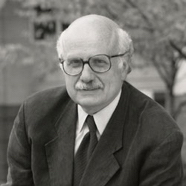The Need To Repair The Electoral Count Act To Protect Future Presidential Elections
Fred Wertheimer’s Weekly Note | August 4, 2022
 In the fall of 2020, Walter Dellinger, the late and widely admired former acting U.S. Solicitor General, was focused on defending Joe Biden against any moves that then-President Donald Trump might make to overturn the 2020 presidential election if Trump lost.
In the fall of 2020, Walter Dellinger, the late and widely admired former acting U.S. Solicitor General, was focused on defending Joe Biden against any moves that then-President Donald Trump might make to overturn the 2020 presidential election if Trump lost.
Dellinger had joined with two other former U.S. Solicitors General, Seth Waxman and Donald Verrilli, to represent Biden if Trump tried to steal the election.
Dellinger became particularly concerned about a little-known provision in an 1845 law that provided state legislatures with the power to choose the presidential electors for their states if the legislature determined that voters in the state had “failed to make a choice” on Election Day.
This obscure law could be subject to serious abuse by a state legislature, even though no legislature so far had done so.
The three Solicitors General, led by Waxman, went on to crush Trump’s legal efforts at every turn. But Dellinger continued to remain deeply concerned about the “failed to make a choice” provision in the Presidential Election Day Act of 1845, which later was included in the Electoral Count Act of 1887 (ECA).
It turned out Dellinger was right.
Evidence in the House Jan. 6 Committee hearings this summer revealed that Trump and his collaborators attempted to have the Justice Department activate Republican state legislatures to invoke the provision in the 1845 law and appoint Trump electors in states he had lost.
The top officials of the Justice Department refused to go along with the scheme, but the danger was real.
Last summer, Dellinger worked with Democracy 21 to craft a reform proposal to get rid of the dangerous “failed election” provision. This proposal was submitted to the White House and to key leaders in Congress.
Since the 2020 presidential election, various other problems with the Electoral Count Act have surfaced.
On Wednesday, the Senate Rules Committee, led by Chairwoman Amy Klobuchar (D-MN) and Ranking Republican Sen. Roy Blunt (R-MO) held a hearing which focused on a proposed reform bill – the Electoral Count Reform Act (ECRA) – developed by a bipartisan group of Senators that is led by Sens. Susan Collins (R-ME) and Joe Manchin (D-WV) who introduced the bill.
The ECRA is important and necessary legislation to update and modernize the flawed ECA and close loopholes that were central to Trump’s attempted coup. First and foremost, the reform measure gets rid of the “failed election” option for state legislatures.
In written testimony submitted to the Senate Rules Committee, Democracy 21 outlined needed changes to improve and strengthen the ECRA in order to ensure it will prevent future coup attempts.
Democracy 21 highlighted key areas that need to be strengthened in order to clarify and tighten provisions in the ECRA and eliminate potential loopholes that could be exploited in a future coup attempt.
Amb. Norman Eisen (ret.) testified before the Committee and proposed similar changes in the ECRA, as did others publicly.
There was broad consensus at the hearing that enactment of the ECRA is necessary to protect against any repeat of the 2020 coup attempt. There was also recognition that Congress needs to pass this legislation this year, before the 2024 presidential election cycle begins in earnest.
Trump’s unrelenting efforts to overturn the 2020 election serve as a clear warning that any opportunity that is left open to steal a future election will be pursued. The ECRA must be loophole-proof if we are to protect the will of the voters to decide a presidential election.
The ECRA provides a critical opportunity to ensure that any future attempt to steal the presidential election will not succeed. It is essential for Congress to act on legislation this year.
________________________
Fred’s Weekly Note appears each Thursday in Wertheimer’s Political Report, a Democracy 21 newsletter. Read this week’s newsletter here. And, subscribe for free here and receive your copy each week via email.